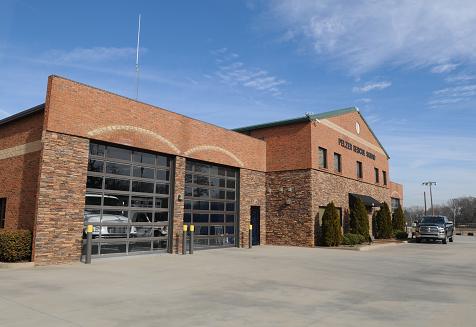Recent changes result in additional paperwork
By Stan Welch
Anderson County rescue squads and EMS units are struggling, if not actually scrambling, to adjust to new federal Medicaid regulations concerning the transport of nonemergency patients. The new rules, implemented in December, are proving somewhat problematic, as all involved in the process are adjusting and working to implement the changes.
Some medical services providers are concerned that recent media reports might leave the impression, however faint, that the compliance issues of those units are somehow intentional; that somehow the concerns about fraud that led to the changes may have some validity.
Craig Lawless, a paramedic and the bookkeeper of the Pelzer Rescue Squad, along with Dan Durham, the chairman of that squad’s board of directors, acknowledge that fraud within the federal Medicare and Medicaid systems is not unheard of.
Lawless, however, says that the pilot program which is now in place in three states, which have shown unusually high numbers of non emergency transports, is beginning to smooth out.
Both men acknowledge that there are some ambulance companies that do little else but non-emergent transport. “Those places operate as a pure business, in most cases,” said Durham. “Our squad is a true rescue squad, which also handles thousands of emergency calls each year. “
The other two states, New Jersey and Pennsylvania, included in the pilot program, which essentially modifies the regulations concerning approval of Medicaid payments for the non-emergent transports of dialysis patients, also demonstrated unusually high numbers of such calls.
Such transports have always required a doctor’s authorization, and federal approval, but it was essentially a patient by patient basis. Under the new regulations, a block of approvals are granted in advance. A doctor’s authorization is still required.
The problems that Lawless said most squads and transport providers have encountered involve additional layers of paperwork.
“We are all in the same boat – Medicaid folks, the squads, the doctors – we’re all trying to get this thing figured out and running smoothly as quickly as we can. And things seem to be leveling out pretty well now. I think there have been some people who have fallen through the cracks during the last few weeks, but I hope that patient impact has been minimal,” said Lawless.
Lawless also pointed out that the number of non-emergent transports the squad makes are not all dialysis related. “There are other reasons to transport a patient who is unable to drive, or obtain other transportation, but clearly, the dialysis transports form the lion’s share.”
Published reports indicate that the Pelzer Squad has seventy seven patients authorized for dialysis transport. The last figures available indicate that more than 8400 transports were provided in 2012. The squad received more than $1 million via Medicaid reimbursements that year.
Durham pointed out that dialysis is a rather unique situation, both medically and logistically.
“Once someone reaches the point where they require dialysis, they have only two possible outcomes,” Durham said. “They may be lucky enough to receive another kidney, or they die. And until one or the other of those results occurs, dialysis is at least a three times a week treatment. That’s a lot of transport.”
Both Durham and Lawless agree that the revenues generated by the non-emergent runs are essential to the continued operations of the Pelzer Rescue Squad.
Lawless said that more than fifty per cent of the squad’s budget comes from these revenues. “We get twenty thousand dollars a month from the county, and believe me, that is a drop in the bucket. Without these other revenues, our status would be drastically reduced.”
At the same time, both agree that federal programs like Medicare and Medicaid have been defrauded in the past.
“If this proves useful in reducing the abuses of those systems, we’ll all be ahead,” Durham said. “We certainly have no problem with the pilot program. We are just trying our best to get it running smoothly so that the patients are taken care of.”
Durham also pointed out that the county recently reconfigured the squad’s status, reducing it from two separately funded squads to one.
The squad that Pelzer established in Powdersville to serve that area,was reduced and absorbed back into the original Pelzer squad, following the conviction of then Powdersville EMS squad director Forrest Thomas on charges of Medicare fraud.
Combining the squads reduced funding by at least $90,000 a year.
















